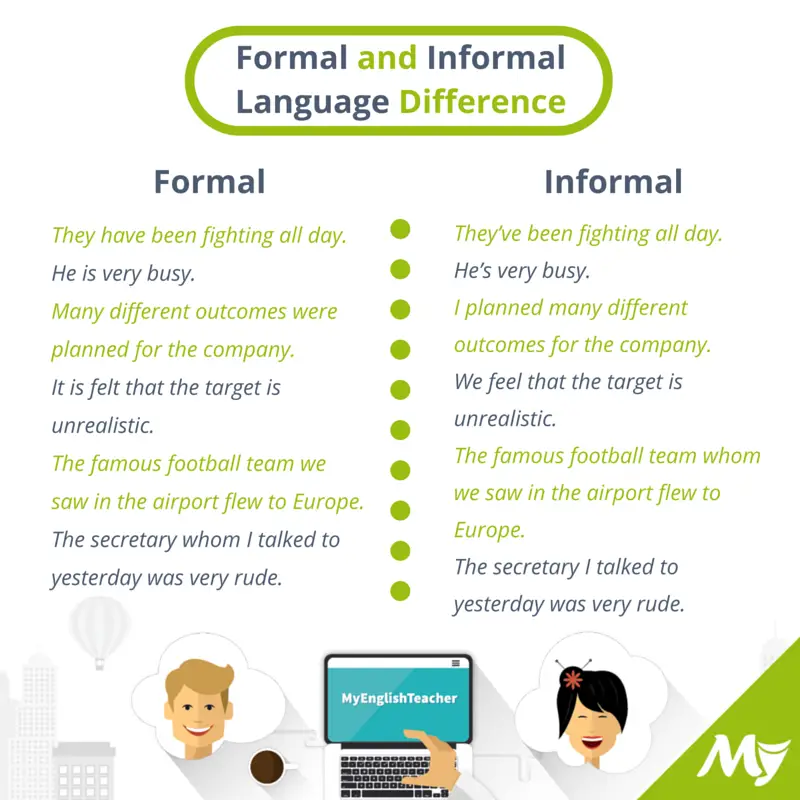
We use formal and informal language in different situations. The choice of words, grammar and tone differ greatly between formal and informal language.
When do we use Formal Language?
We mostly use formal language when writing. Think of academic articles, business emails or reports, but we also use formal language when giving lectures or presentations. In these situations the language and tone is less personal, we do not use casual language or colloquialisms.
When do we use Informal Language?
Informal language is mostly used while talking as it is more impulsive and casual, think of everyday conversations with your family and friends. Informal language is not just used when we are talking however, we can also use informal language when we are writing such as writing a postcard to a family member or sending a text message to a friend or some business correspondences. In these situations we use casual, colloquial language and our tone is a lot more personal.
How does the tone differ?
The tone we use with formal language is a lot more rigid and less relaxed or friendly. Whereas the tone we use with informal language is more personal and relatable.
How does the grammar differ?
We don’t use contractions in formal language.
- Informal: They’ve been fighting all day.
- Formal: They have been fighting all day.
- Informal: He’s very busy.
- Formal: He is very busy.
Formal language doesn’t use the first person pronouns.
- Informal: I planned many different outcomes for the company.
- Formal: Many different outcomes were planned for the company.
- Informal: We feel that the target is unrealistic.
- Formal: It is felt that the target is unrealistic.
Relative clauses must had the relative pronoun whom when using formal language.
- Informal: The famous football team whom we saw in the airport flew to Europe.
- Formal: The famous football team we saw in the airport flew to Europe.
- Informal: The secretary I talked to yesterday was very rude.
- Formal: The secretary whom I talked to yesterday was very rude.
How does the vocabulary differ?
Informal: show, start, free, let, find out, go against, go up, go down, keep.
Formal: demonstrate, commence, release, permit, discover, dispute, increase, decrease, retain.
Recommended for you:
Formal and Informal Email Phrases Starting with Greetings
Other ways to say “Nice To Meet You”
Can we use formal expressions in informal expressions…
Other Ways To Say NO PROBLEM
What’s the informal word for ‘tolerate’?
Phone Conversation: Most Commonly Used English Phrases


























